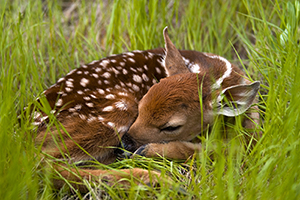Home → Fish & Wildlife → Wildlife → Beginning with Habitat → Landowners → Landowner Resources
Landowner Resources

Technical Assistance
Consult your local experts to learn more about your land and its potential, and for guidance on how to achieve the goals you have for it. The following state and federal agencies are here to help you, free of charge, with your habitat, wildlife, access, forest, and other natural resource considerations.
- MDIFW Beginning with Habitat Landowner Outreach Biologist
- MDIFW Regional Biologists
- MDIFW Landowners Relations Program
- Maine Forest Service Be Woods Wise: District Foresters
- Natural Resources Conservation Service
- Maine Association of Conservation Districts
- Licensed Maine Foresters
- Maine Natural Areas Program
Financial Assistance
Doing the right thing for the land should not be a financial burden. To that end, Maine offers tax incentives to help maintain our open spaces, and the USDA-NRCS and Be Woods Wise programs offer financial assistance to landowners who would like to have natural resource management plans written for their land. The NRCS also offers financial assistance with implementing plans that conserve and enhance natural resources.
- Maine’s Current Use Tax Laws (Tree Growth, Open Space, Farmland, and Working Waterfront)
- USDA-NRCS Environmental Quality Incentives Program
- Be Woods Wise: Incentives
Habitat Management Guides and Information
As you explore the management opportunities on your land, the following materials can help. Discuss them with your local forester or agency experts, and they’ll help you translate guidance into action.
If you want to...

Get overall habitat management guidance,
View our 12 Months of Habitat Management Checklist:
- January Habitat Management (PDF)
- February Habitat Management (PDF)
- March Habitat Management (PDF)
- April Habitat Management (PDF)
Our neighbors in Vermont and New Hampshire have produced great comprehensive habitat guides that are applicable to Maine:

Manage a specific habitat type,
Explore the following resources:
- Forest
- Forestry for Maine Birds (PDF) (see Maine Audubon for more details)
- Focus Species Forestry (PDF)
- Managing for Upland Wildlife (PDF)
- Beech-Oak Mast Management (MS Word)
- Herbaceous Openings for Wildlife (PDF)
- Grassland, shrubland, or young forest
- Managing Grasslands, Shrublands, and Young Forest Habitats for Wildlife (PDF)
- Young Forest Guide (PDF) (see The Young Forest Project for more details)
- Streams, stream crossings, or ponds
- Pond Creation and Management
- Stream Smart pocket guide (PDF) (see Maine Audubon for more details)
- Stream habitat enhancement
- Maine Stream Habitat Viewer
- Backyard habitat:
- Principles for Creating Backyard Wildlife Habitat (PDF) – UMaine Coop. Extension
- Components of a Backyard Wildlife Habitat (PDF) – UMaine Coop. Extension
- Native Plant Finder (see Maine Audubon for more details)
- National Audubon Society – Native Plants Database
- Unique habitat types

Create or manage specific habitat features,

Manage for specific wildlife,
- Amphibians and Reptiles: Management Guidelines (PDF)
- Deer: A Small Woodlot Owner’s Guide (PDF)
- Deer: Living on the Edge
- Deer Wintering Area Guidelines (PDF)
- New England Cottontail (see NewEnglandCottontail.org for more details)
- American Woodcock: Habitat Best Management Practices for the Northeast (PDF) (see timberdoodle.org for more details)
- Ruffed Grouse (PDF)
- Heron: Forestry and Heron can Mix (MS Word)
- Protecting Pollinators (see Xerces Society for more details)
- Pollinator Plants: Northeast Region (PDF)
Forest Management Plan Review
Beginning with Habitat offers Forest Management Plan reviews to help you determine if rare, threatened, or endangered species or sensitive habitats are present on your woodlot. This service will provide you with a letter describing any relevant natural resource features, management guidelines as appropriate, a checklist, and map as supporting materials that can be incorporated into your Forest Management Plan. Our reviews are completed with the assistance of the Maine Natural Areas Program, IFW Regional staff, and IFW species specialists.
You can request a Forest Management Plan review by sending a map showing the property location or digital data (KML or SHP preferred) via email to fmp.ifw@maine.gov or regular mail to 41 State House Station, Augusta, ME, 04333-0041.
Explore additional Resources
- Living Responsibly with Wildlife – guidance on dealing with wildlife conflicts
- My Land Plan – land planning tool from American Forestry Foundation
- Maine Land Trust Network – find your regional land trust
- Go Botany – plant identification tool
- Web Soil Survey – learn about your land’s soil
Specific to forest ownership and stewardship:
To view PDF documents, you will need the free Adobe Reader. If you need assistance, view our PDF Help page, or email us.